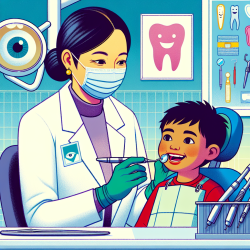As a Special Education Director, I understand the unique challenges faced by children with disabilities. A recent study titled Dental Treatment Needs of Children with Disabilities highlights critical insights that can help dental practitioners improve their skills and better serve this vulnerable population. The study, conducted by Ajami, Shabzendedar, Rezay, and Asgary, reveals significant disparities in oral health between children with disabilities and their non-disabled peers. By implementing the outcomes of this research, dental practitioners can make a meaningful difference in the lives of these children.
Key Findings from the Study
The study assessed the oral health of 1621 children aged 5-16 with various disabilities, including hearing impairment (HI), mental retardation (MR), and visual impairment (VI). The findings were sobering:
- Children with MR had poorer oral hygiene and periodontal status compared to HI and VI children.
- The caries frequency was lower in HI children than in MR and VI children.
- Most children had Class I malocclusion (57%).
Practical Recommendations for Dental Practitioners
Based on these findings, here are some practical recommendations for dental practitioners:
- Enhanced Training: Dental practitioners should seek specialized training in treating children with disabilities. This includes understanding their unique oral health challenges and learning effective communication techniques.
- Preventive Measures: Implementing preventive measures such as regular oral hygiene instructions, application of topical fluoride, and fissure sealants can significantly reduce the risk of caries and periodontal diseases.
- Collaborative Efforts: Greater coordination between dental, medical, and social services is essential to address the comprehensive needs of children with disabilities.
- Individualized Care Plans: Develop personalized care plans that consider the specific needs of each child. Regular recall visits and follow-ups are crucial to monitor and maintain oral health.
- Utilize Dental Auxiliaries: Trained dental auxiliaries can assist in providing preventive care, simple restorations, and oral health promotion under the supervision of a dentist.
Encouraging Further Research
While the study provides valuable insights, it also underscores the need for further research. Dental practitioners are encouraged to participate in or support ongoing research efforts to better understand and address the oral health needs of children with disabilities. Continuous learning and adaptation are key to providing the best possible care.
To read the original research paper, please follow this link: Dental Treatment Needs of Children with Disabilities.










